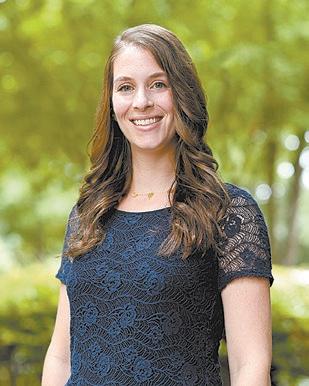
3 minute read
KIDS
SOCIAL MEDIA SAVVY
Teaching teens online responsibility STORY: Giannina S. Bedford
Advertisement
School is out for the summer: Cue lazy mornings, sunny days at the pool and, unfortunately, more screen time. Teenagers, especially, may be racking up those minutes (or hours) on social media. According to a 2018 Pew Research Center survey of 13- to 17-year-olds, 45% are online almost constantly, and 97% use a social media platform such as YouTube, Facebook, Instagram and Snapchat. While social media has its positives—socializing, self-expression, entertainment— experts agree it’s vital for parents to monitor and prepare kids for the negative aspects associated with its use.
“There are such great parts about social media, and, at the same time, it can also be really detrimental,” says Michelle Manne, a licensed clinical social worker who runs a private practice, MRM Counseling, in Sandy Springs. “While social media can be educational, it can also be too focused on comparisons to others and not staying present in real life.”
According to Mayo Clinic experts, social media has also been linked to sleep disruption, bullying, rumor spreading and even a heightened risk for mental health problems. Stephanie Walsh, medical director for child advocacy and a pediatrician at Children’s Healthcare of Atlanta’s Strong4Life clinic, says kids need to have strong coping mechanisms in place before they are exposed to or begin using social media.
“I personally don’t think kids need social media until they are able to handle things that happen on it. To me, that is late middle school or high school,” Walsh says. “You need to have a conversation with your kids and say, ‘These are some of the experiences that are going to happen and how are we going to handle it.’ You need a plan in place.”
Manne and Walsh agree that parents should set limits around the amount of time or times of day kids are allowed to use social media. Walsh suggests no devices at family meal-times and using charging stations that are outside the bedroom every night. It’s also important for parents to model limited use of screen time for themselves.
“Ironically, this is the one topic that parents don’t want to work on either. While we are worried about it, we don’t work on it for ourselves so that makes it hard for our children to,” Walsh says. “Cell phone usage and screen time are really good ways for parents to start role modeling.”
Having access to your child’s device and doing regular check-ins of their profiles are also necessary to make sure there aren’t any risky behaviors taking place. If there are conduct concerns, step up the oversight with a content monitoring app.
“It’s about having an open relationship with your kid where you can say, ‘Let me see your phone’ or you can sit down together and look at the phone and see what they’ve been up to. Do a check-in every week or two together,” Manne says.
According to a recent Pew Research study, more than 60% of parents monitor what websites their children are visiting and what they’re doing on social media. Another 35% of parents have the passwords to their kids’ social media accounts.
“You should always be able to get on your kids’ phones and have their passwords and feel that it’s OK [to use them],” Walsh says. “Kids’ brains and their ability to make long-term decisions, their ability to understand risk, none of that is developed until their 20s, so what you are doing is keeping them safe.” n

Courtesy of Children’s Healthcare of Atlanta Strong4Life
MICHELLE MANNE 404.919.2575 mrm-counseling.com
STEPHANIE WALSH 404.785.5437 choa.org • @childrensatl










